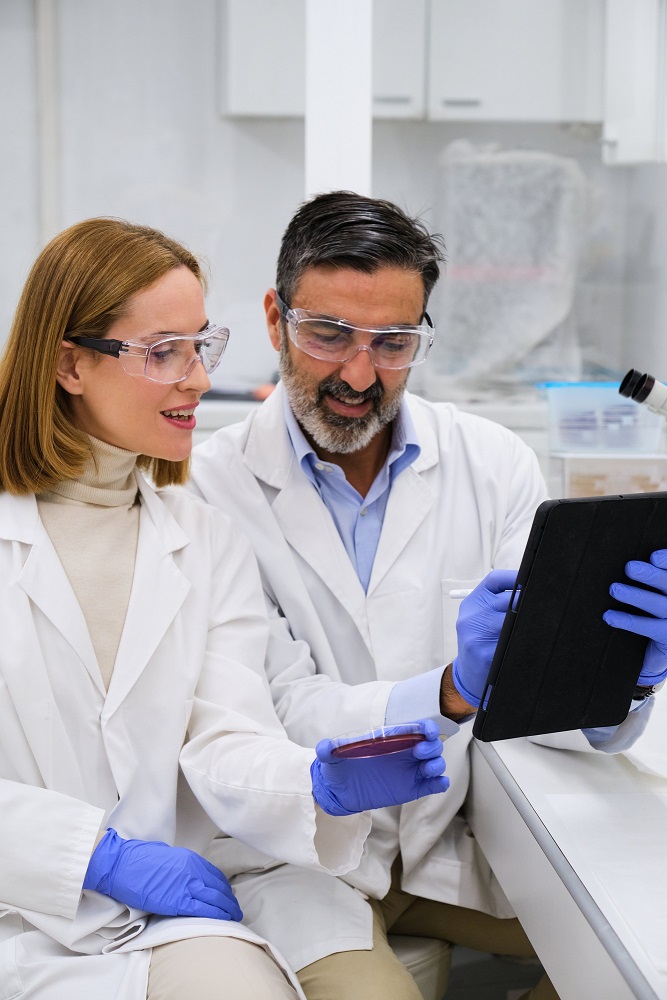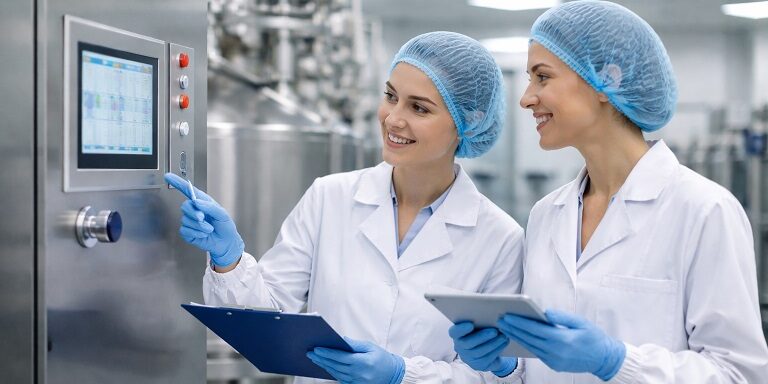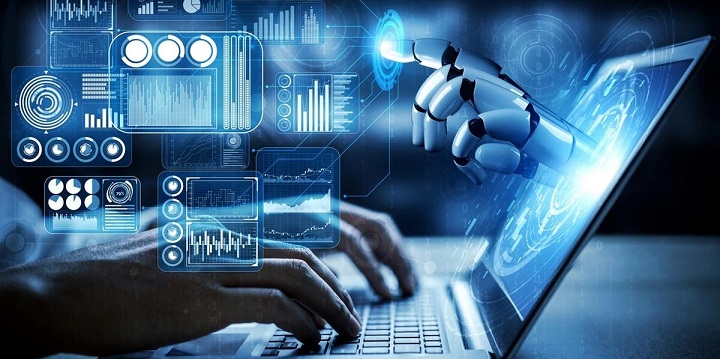Laboratory equipment is the foundation of accurate research, precise analysis, and safe experimentation. Whether you’re equipping a school lab, a GMP-certified facility, or a modern research center, choosing the right tools is crucial. But how do you make the best choice with so many options and brands available?
In this guide, you’ll learn the main categories, comparisons, and procedures for selecting high-quality laboratory equipment based on your needs and compliance goals. Plus, we’ve included expert tips and exclusive resources from Pharmuni.

What Is the Purpose of Laboratory Equipment?
Laboratory equipment helps you carry out essential scientific procedures, from measuring and testing to mixing and sterilizing.
Each piece serves a unique role across various types of labs, such as chemistry, biology, and pharmaceutical research. Using the correct lab equipment improves precision, ensures repeatable results, and reduces safety risks.
Correct equipment selection is vital for GMP compliance.
A centrifuge separates substances efficiently, while a spectrophotometer helps assess sample concentration. Equipment like pipettes, autoclaves, and microscopes also impact data integrity. That’s why our Lifecycle of GMP Qualified Equipment course teaches you how to manage lab tools effectively from purchase to decommissioning. Join the course and boost your lab’s compliance and reliability.
Sign up for Performing Phase of GMP Equipment Qualification Course
10 Common Laboratory Equipment Mistakes to Avoid
Skipping calibration steps
e.g., analytical balance calibration steps are mandatory.
Ignoring autoclave safety procedures
this can risk contamination and safety.
Using outdated microscopes
impacts visibility and data reliability.
Buying cheap pipettes
leads to inconsistent liquid handling.
Overloading centrifuges
affects sample integrity.
Using poorly ventilated fume hoods
increases exposure to toxic vapors.
Failure to validate autoclaves
risks product sterility in GMP settings.
Why Do Lab Equipment Choices Matter for Compliance?
Overlooking the Lifecycle Management
Your equipment needs don’t end at purchase. Tools like the centrifuge or spectrophotometer must follow a lifecycle: selection, installation, qualification, maintenance, and decommissioning.
GMP guidelines demand traceability and documented procedures across this cycle. That’s why lifecycle learning is essential.
Using Non-Validated Devices
If your lab uses non-validated autoclaves or uncalibrated magnetic stirrers, you risk audit failures.
Don’t assume all equipment is audit-ready out of the box. Validation protocols and proper documentation are key.
📘 Check out our blog: GMP Learning Made Simple: Your Key Step Guide

Main Categories of Laboratory Equipment and What They’re For
Measurement Tools
Ensure consistency with tools like analytical balances and digital pH meters.
Mixing Tools
Magnetic stirrer hot plate combos and vortex mixers help dissolve and prep compounds.
Thermal Tools
Autoclaves, Bunsen burners, and lab water baths manage sterilization and heating.
Microscopy Tools
Microscopes and slides help observe biological and chemical details.
Handling Tools
Pipettes, racks, and lab consumables ensure accurate handling of samples.
How to Compare and Calibrate Lab Equipment
What’s the Best Way to Compare Lab Equipment?
When evaluating lab equipment, use these criteria:
- Accuracy and repeatability (especially for pipettes and balances).
- Compatibility with compliance frameworks (e.g., GMP, ISO).
- Availability of documentation (e.g., autoclave validation protocols).
- Support and training by the manufacturer.
- Energy efficiency and long-term cost.
How to Calibrate Common Lab Tools?
- Microscope: Adjust focus, stage alignment, and resolution per calibration sheets.
- Analytical balance: Use traceable weights, follow manufacturer’s instructions, and log calibration events.
- Spectrophotometer: Validate wavelength and absorbance settings regularly.
- Digital pH meter: Calibrate using pH buffer solutions (4.0, 7.0, 10.0).
What Are the Differences in Lab Equipment by Discipline?
Chemistry lab equipment helps you work with heat, reactions, and chemical substances. You often use hot plates, Bunsen burners, and pH meters to manage these tasks. Titration glassware also plays a key role in measuring exact volumes during reactions. These tools allow you to heat, mix, and measure chemicals safely and accurately. In contrast, biology lab equipment supports work with cells, bacteria, and other living samples. You usually need microscopes, incubators, autoclaves, and centrifuges in these settings. These tools help you grow, observe, and clean biological materials. Therefore, each lab type requires specific tools based on its focus area.
Meanwhile, physics lab apparatus supports measurement and analysis using force, optics, or electricity. For example, digital oscilloscopes and vacuum chambers help monitor electrical signals or simulate space conditions. Compared to chemistry tools, physics equipment focuses less on reactions and more on data tracking. Still, chemistry labs need strict safety tools due to chemical risks. So, when you search for “chemistry lab equipment suppliers near me,” check for safety-rated options. Always match tools to your field’s exact needs and standards.
5 Tools That Every Biology Lab Needs
Biology Lab Equipment List (Schools)
Microscope, pipette, centrifuge, test tube rack, incubator.
Spectrophotometer for Biology Labs
Vital for DNA, RNA, and protein analysis.
Lab Incubator
Maintains samples at stable growth temperature.
Lab Water Bath
Gently heats materials without open flames.
Pipettes
Allow precise micro-volume transfers in cell experiments.
Conclusion: Choose Smarter, Stay Compliant
Choosing the best laboratory equipment doesn’t mean picking the most expensive tools. It means matching each device to your lab’s goal, ensuring compliance, and preparing for audits. Consider calibration needs, lifecycle management, supplier reputation, and documentation support. From microscopes and pipettes to autoclaves and centrifuges, your equipment choices define the accuracy and safety of your entire operation.
Want to elevate your knowledge?

Ershad Moradi
Ershad Moradi, a Content Marketing Specialist at Zamann Pharma Support, brings 6 years of experience in the pharmaceutical industry. Specializing in pharmaceutical and medical technologies, Ershad is currently focused on expanding his knowledge in marketing and improving communication in the field. Outside of work, Ershad enjoys reading and attending industry related networks to stay up-to-date on the latest advancements. With a passion for continuous learning and growth, Ershad is always looking for new opportunities to enhance his skills and contribute to pharmaceutical industry. Connect with Ershad on Facebook for more information.

Master GMP Compliance in 2026: Meaning, Core Elements, and How to Implement
GMP compliance keeps medicines safe, consistent, and traceable across every batch. This guide explains core GMP elements, practical rollout steps, and common pitfalls. It also shows how to strengthen training, documentation, data integrity, and audit readiness.

History of Pharmacovigilance: From the Thalidomide Crisis (1961–2026) to GMP Oversight
Thalidomide in 1961 changed drug safety forever. Since then, pharmacovigilance has grown from crisis response to proactive risk management. Today, teams track signals, tighten reporting rules, and connect safety data to quality systems. As a result, PV now links directly to GMP oversight, audits, and data integrity.

Periodic Safety Update Reports (PSUR) in Pharmacovigilance: Regulatory Expectations and Inspection Impact in 2026
Periodic Safety Update Reports now function as inspection evidence, enabling regulators to evaluate ongoing safety surveillance, benefit–risk assessment, and pharmacovigilance system control across the product lifecycle, rather than treating PSURs as regulatory submissions.




